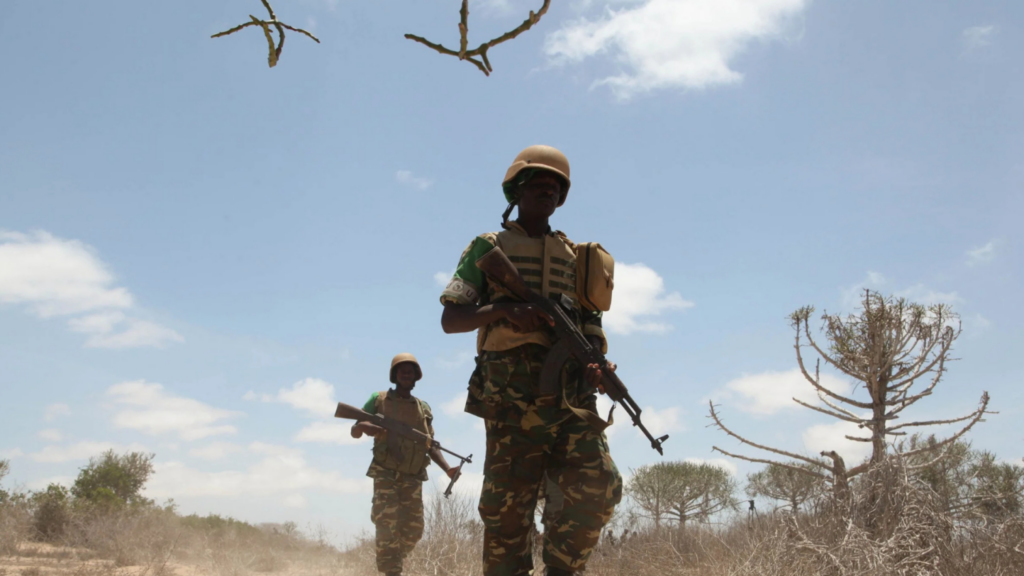Fuel Blockade Latest Blow to Mali’s Deepening Security Crisis
The blockade imposed by the jihadist insurgent group JNIM since early September has forced Malian authorities to shut schools and universities, while foreign powers have urged their citizens to leave the country.
In a significant blow to Mali’s junta-led government, which promised to reverse the country’s deteriorating security situation and eliminate violent armed groups, a fuel blockade imposed by the Al-Qaeda linked jihadist group ‘Jama’a Nusrat ul-Islam wa al Muslimin’ (JNIM) is squeezing Mali’s fragile economy.
The West African nation has been mired in conflict since 2012, when an armed uprising led by ethnic Tuareg fighters sought to separate the region of Northern Mali (Olivesi, 2012). The chaos which ensued was then seized upon by a host of rebel groups and local militia, including a large number of Islamist militants, many of whom are affiliated with Al-Qaeda or the Islamic State (IS) (Huckabey, 2013). This has resulted in a long-running war of attrition between the Malian government forces and the plethora of armed groups, which have spilled over into neighboring states (Center for Preventive Action, 2025). Indeed, the Sahel is considered the global epicenter of violent extremism, with more than half of all terrorism-related deaths globally occurring in the region (Global Terrorism Index, 2025).
Yet, in 2021, a coup d’état led by Mali’s armed forces – the second in the space of nine months – ousted President Bah N’daw and Prime Minister Moctar Oune, replacing them with military rule (International Crisis Group, 2021).
The junta, led by army general Assimi Goïta, promised to address Mali’s long-running security crisis and neutralize the threat of Islamist militants (Al Jazeera, 2021).
This included overseeing the withdrawal of French soldiers, who had long been present in Mali to lead the fight against jihadist insurgencies – first under Operation Serval (2013-2014) and latterly under Operation Barkhane (2014-2022). Despite the initial success of Operation Serval in driving out Islamist groups from the north of the country, subsequent actions fell short of achieving their stated aim of eliminating jihadist insurgencies from Mali and the wider Sahel (King, 2023).
By the time of the 2021 coup, Operation Barkhane was coming under increasing international criticism as Islamist groups continued to expand their reach across Mali and civilian casualties kept climbing (Africa Center for Strategic Studies, 2022). This was compounded with a collapse in relations with France following the installation of the military junta, which French President Emmanuel Macron described as ‘destabilizing’ (Euronews, 2021). As relations deteriorated and Operation Barkhane was failing in its aim of improving the country’s security situation, the French military withdrew from Mali beginning in 2022.
Fast forward to the present day, however, and Mali’s security situation has deteriorated further. Despite the junta-led government’s promises of driving out Islamist insurgencies and stabilizing the country, the crisis has deepened as jihadist groups have continued to expand their control and influence across many parts of Mali (Sippy and Boswall, 2025).
In the latest blow to the country’s deepening security crisis, the Al-Qaeda linked group JNIM has imposed a nationwide blockade on fuel supplies. The group – which exerts control across large parts of rural Mali – has targeted fuel tankers entering the country from neighboring Senegal and the Ivory Coast, siphoning Mali’s fuel supplies to devastating effect (Jha, 2025). The group initially claimed that the embargo was a retaliatory response to the decision of the junta-led government to prohibit the sale of fuel outside stations in rural areas – where it is often decanted into jerry cans to be resold – a step the authorities say they took to cut off JNIM’s supply lines (Al Jazeera, 2025).
But as the blockade nears its second month, the authorities are struggling to contain the effects on Mali’s fragile economy. In a country with a precarious economic situation, heavily reliant on fuel imports, the blockade precipitated a rise in commodity and transport prices (Ojewale, 2025). Furthermore, the authorities have also decided to shut all schools and universities for two weeks, in recognition of the disruption that the blockade is presenting for the movement of students and staff (Rukanga, 2025).
While the government insists it is doing all it can to resolve the situation, its efforts so far have been ineffectual (Jones, 2025). Meanwhile, foreign powers such as the US and Italy have instructed citizens to leave the country amid the chaos (Agbetiloye, 2025).
For a regime that promised to improve the country’s dire security situation, the blockade represents a substantial blow to its standing. If the authorities fail to grasp a hold of the spiraling chaos and stabilize the country, Mali could face yet further political instability, with potential devastating consequences for a population already struggling under the weight of poverty and conflict.
Bibliography
Africa Center for Strategic Studies (2022). Surge in Militant Islamist Violence in the Sahel Dominates Africa’s Fight against Extremists. Africa Center for Strategic Studies. [Online] Available at: Surge in Militant Islamist Violence in the Sahel Dominates Africa’s Fight against Extremists – Africa Center
Agbetiloye, A. (2025). Italy follows U.S. warning, advises its citizens to evacuate Mali. Business Insider Africa. [Online] Available at: Italy follows U.S. warning, advises its citizens to evacuate Mali | Business Insider Africa
Al Jazeera. (2021). Mali coup leaders promise elections after Keita overthrow. Al Jazeera. [Online] Available at: Mali coup leaders promise elections after Keita overthrow | Politics News | Al Jazeera
Al Jazeera. (2025). Mali shuts schools as fuel blockade imposed by fighters paralyses country. Al Jazeera. [Online] Available at: Mali shuts schools as fuel blockade imposed by fighters paralyses country | Education News | Al Jazeera
Centre for Preventive Action. (2025). Violent Extremism in the Sahel. Global
Conflict Tracker. [Online] Available at: Violent Extremism in the Sahel | Global Conflict Tracker
Euronews. (2021). Macron warns France could withdraw troops from Mali following coup. Euronews. [Online] Available at: Macron warns France could withdraw troops from Mali following coup | Euronews
Global Terrorism Index 2025. (2025). Institute for Economics & Peace. [Online] Available at: Global-Terrorism-Index-2025.pdf
Huckabey, J. M. (2013). Al Qaeda in Mali: The Defection Connections. Orbis, 57(3), pp.467-484).
International Crisis Group. (2021). Mali, a Coup within a Coup. International Crisis Group. [Online] Available at: Mali, a Coup within a Coup | International Crisis Group
Jha, P. (2025). Businesses close as fuel blockade hits Mali’s economy. Semafor Africa. [Online] Available at: Businesses close as fuel blockade hits Mali’s economy | Semafor
Jones, T. (2025). Mali closes schools, unis, as jihadists block fuel supply. DW. [Online] Available at: Mali closes schools, unis, as jihadis block fuel supply – DW – 10/27/2025
King, I. (2023). How France Failed Mali: the End of Operation Barkhane. Harvard International Review. [Online] Available at: How France Failed Mali: the End of Operation Barkhane
Ojewale, O. (2025). Bamako under siege: why Mali’s army is struggling to break the jihadist blockade of the capital. The Conversation. [Online] Available at: Bamako under siege: why Mali’s army is struggling to break the jihadist blockade of the capital
Olivesi, M. (2012). Mali’s crisis. DW. [Online] Available at: Mali’s crisis – DW – 05/10/2012
Rukanga, B. (2025). Mali shuts schools and universities as jihadist blockade worsens fuel crisis. BBC News. [Online] Available at: Mali shuts schools and universities as fuel crisis caused by jihadist blockade worsens – BBC News
Sippy, P. and Boswall, J. (2025). JNIM in Mali: How an al-Qaeda offshoot became one of Africa’s deadliest militant groups. BBC News. [Online] Available at: JNIM in Mali: How an al-Qaeda offshoot became one of Africa’s deadliest militant groups – BBC News


